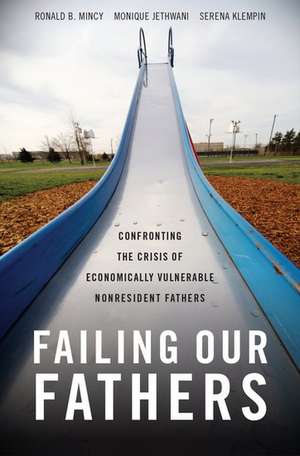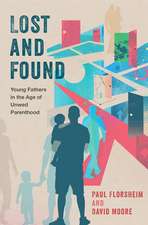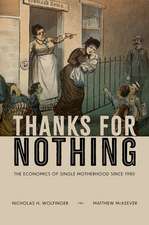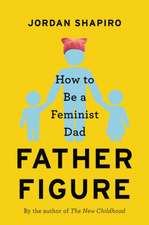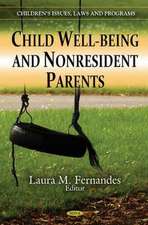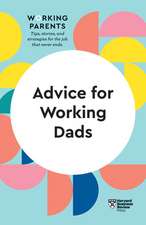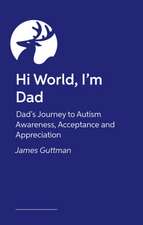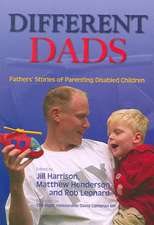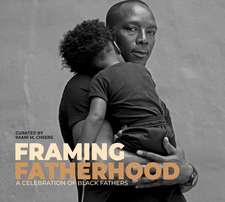Failing Our Fathers: Confronting the Crisis of Economically Vulnerable Nonresident Fathers
Autor Ronald B. Mincy, Monique Jethwani-Keyser, Serena Klempinen Limba Engleză Hardback – 15 ian 2015
Preț: 233.87 lei
Preț vechi: 322.24 lei
-27%
Puncte Express: 351
Preț estimativ în valută:
41.35€ • 49.07$ • 35.95£
41.35€ • 49.07$ • 35.95£
Carte tipărită la comandă
Livrare economică 02-08 aprilie
Specificații
ISBN-13: 9780199371143
ISBN-10: 0199371148
Pagini: 208
Dimensiuni: 157 x 236 x 20 mm
Greutate: 0.48 kg
Editura: Oxford University Press
Colecția OUP USA
Locul publicării:New York, United States
ISBN-10: 0199371148
Pagini: 208
Dimensiuni: 157 x 236 x 20 mm
Greutate: 0.48 kg
Editura: Oxford University Press
Colecția OUP USA
Locul publicării:New York, United States
Recenzii
Rarely does one book paint a clear, concise, and lucid understanding of a population. As the research and scholarship on responsible fatherhood continue to grow, a greater understanding emerges bridging child welfare and father involvement.Failing Our Fathersadds to this understanding by defining the world of vulnerable nonresident fathers in their own words.
The volume broadens our recognition and deepens our understanding of nonresident fatherhood by expanding the lens from which economic vulnerability is examined, the myriad of mechanisms and life course events that characterize their respective plights and struggles. The qualitative insights will yield an enhanced discourse on their lives as fathers and life course experiences as parents.
The volume broadens our recognition and deepens our understanding of nonresident fatherhood by expanding the lens from which economic vulnerability is examined, the myriad of mechanisms and life course events that characterize their respective plights and struggles. The qualitative insights will yield an enhanced discourse on their lives as fathers and life course experiences as parents.
Notă biografică
Ronald B. Mincy, PhD, is the Maurice V. Russell Professor of Social Policy and Social Work Practice at the Columbia University School of Social Work and Director of the Center for Research on Fathers, Children and Family Well-Being (CRFCFW). He is also a co-principal investigator of the Fragile Families and Child Wellbeing Study. Monique Jethwani-Keyser, PhD is a Lecturer at the Columbia University School of Social Work (CUSSW), where she is teaching Human Behavior and the Social Environment, Adolescent Development, and Clinical Practice Evaluation.Serena Klempin, MSW, is a Research Associate at the Community College Research Center, Teachers College, Columbia University. She was most recently a Research Associate at the Columbia University School of Social Work's Center for Research on Fathers, Children and Family Well-Being.
